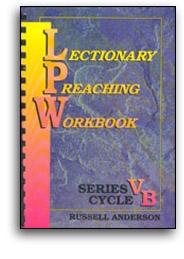SermonStudio
The mystery of the divine presence
Preaching
Lectionary Preaching Workbook
Series V, Cycle B
Theme For The Day: The mystery of the divine presence. As Isaiah witnesses the heavenly scene, the God of holy terror shows his forgiving face. Jesus tells Nicodemus that he must be born from above to see and enter into the mysteries of the kingdom of God.
BRIEF COMMENTARY ON THE LESSONS
Lesson 1: Isaiah 6:1-8 (C)
BRIEF COMMENTARY ON THE LESSONS
Lesson 1: Isaiah 6:1-8 (C)


